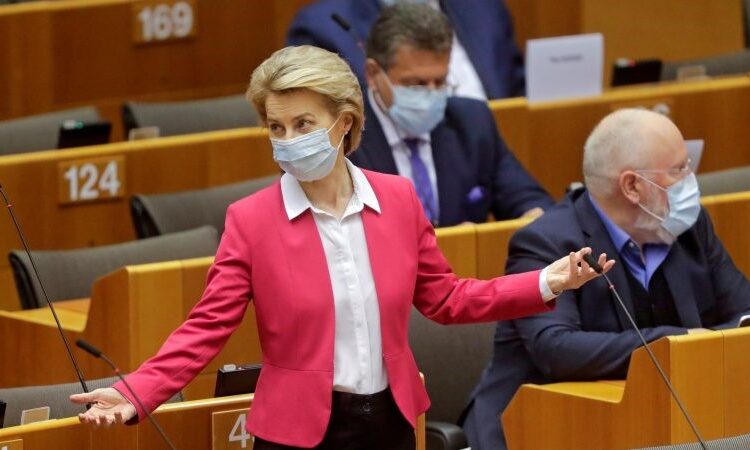As outlined in our recent blog post on the issue of supporting the European economy during the COVID-19 crisis, “there will be at least three stages, in terms of the Eurozone, and the EU more broadly, agreeing measures to combat the fallout from the COVID-19 pandemic”. Wednesday’s unveiling of the ‘Next Generation EU’ recovery package by the European Commission marks the beginning of the end of the third act of this saga.
By Dara Turnbull, Housing Europe Research Coordinator
Stage one was about the ECB and other central banks shoring-up the liquidity of lenders. Stage two was about providing short-term liquidity to governments and others involved in the fight against COVID-19 to protect workers and provide much needed funding for healthcare systems.
The final piece of the puzzle was always going to be about ‘recovery’ and looking to the future. Recent warnings from the ECB that the Eurozone economy will shrink by 8-12 per cent this year mean that a concrete recovery package cannot come soon enough. If the same decline were seen across the EU as a whole, then we would be looking at a decline of around €1.1-1.7 trillion in output in 2020 alone.
So, what have the European Commission proposed and what potential impacts might it have on the providers of social housing?
Firstly, the headline figure from ‘Next Generation EU’ is €750bn. This is the sum that the European Commission wants to borrow on markets in order fund its post-COVID economic stimulus. This is not to be confused of course with the €1.1 trillion seven-year EU budget programme (‘Multiannual Financial Framework’), which was also outlined on Wednesday.
The most important detail of the plan outlined by the Commission President, Ursula von der Leyen, is that the €750bn will be made up of €250bn of loans to Member States, which they will have to repay and, crucially, €500bn of ‘grants’, which they will neither have to repay nor, as a consequence, have added to their national debt. This will be essential for those countries whose weakened fiscal positions mean that adding to their debts today, will inevitably lead to austerity type measures tomorrow.
The debt issuance will be guaranteed by contributions from individual member states, while new revenue raising measures operated by the Commission itself, so-called ‘Own Resources’, will also be used. While the exact ‘formula’ which will be applied when issuing funds to state has yet to be agreed, early analysis suggests that Italy and Spain, which have been particularly impacted by the pandemic, will be the two largest benefactors.
In terms of how Next Generation EU will deliver funds, they will be linked to the long-term strategic ambitions of the Commission (i.e. green and digital transition, resilience of national economies). Thus, they will be channelled through a number of new funds and mechanisms, as well as some beefed-up pre-existing ones. Therefore, there is some light conditionality, with member states not having carte blanche to spend funds however they wish.
€560bn of the money (“Recovery and Resiliency Facility”) is being directly linked to the investment and reform priorities set out as part of the European Semester, with a lack of social housing and the need for greater investment in upgrading the energy efficiency of the housing stock mentioned in a number of countries.
A further €55bn (‘REACT EU’) will be provided in the form of additional ‘cohesion’ supports for member states and should begin releasing funds this year. While we must wait for further details, there is potential scope through this instrument to finance the renovation of buildings.
Finally, the Commission is proposing “to provide additional funding for the Just Transition Fund”, which may also provide some benefit for the renovation of social housing. The additional transition funds linked to Next Generation EU is of the order of €30bn, which will be leveraged into well over €100bn of green investment using a similar mechanism as the InvestEU programme, by providing guarantees to private investors.
Of course, all of this discussion about the potential for greater investment in social housing could be moot if the European Council fails to find agreement on the Commission’s proposals. Indeed, as Politico stated in their review of the plans “[s]keptics of her plan — especially the leaders of Austria, Denmark, the Netherlands and Sweden — argue von der Leyen is welcome to gamble her presidency as she likes, but not using their taxpayers’ money. Fierce negotiations now lie ahead”.
EU Leaders will meet on the 19th of June to discuss the proposals. This is only the beginning of the end of the saga. Watch this space.
